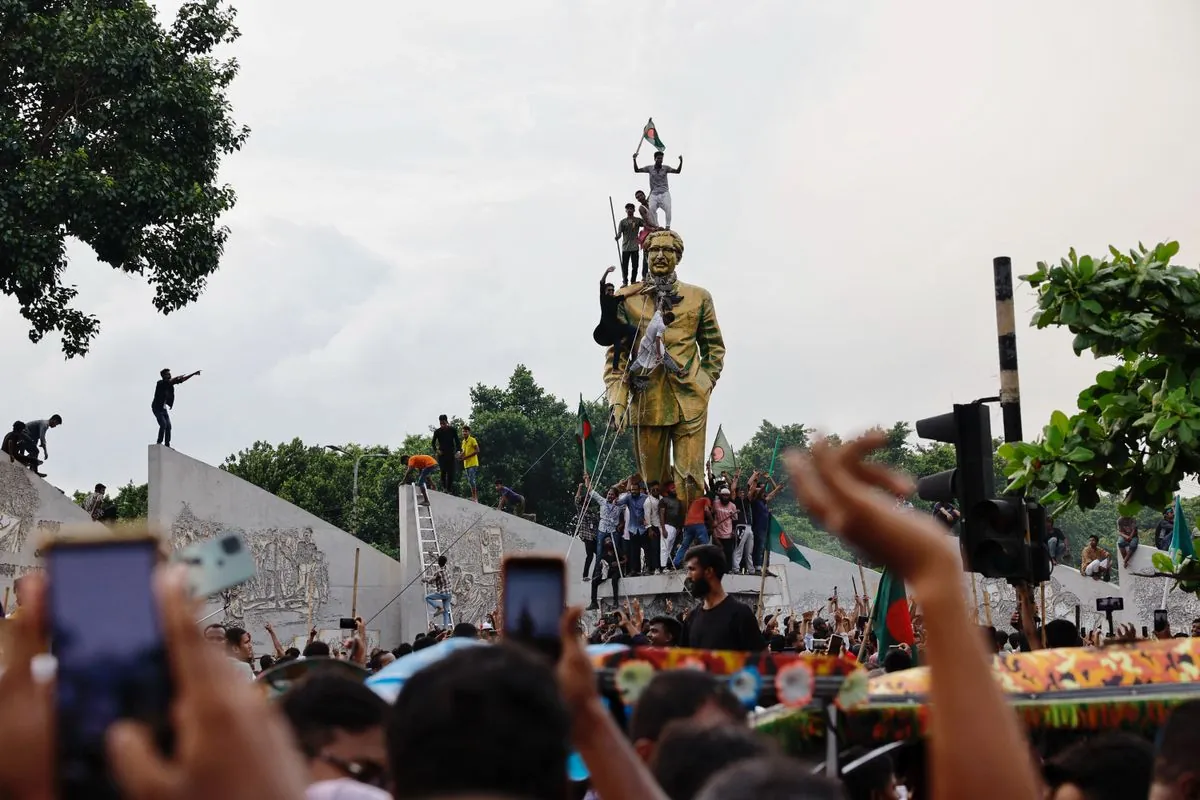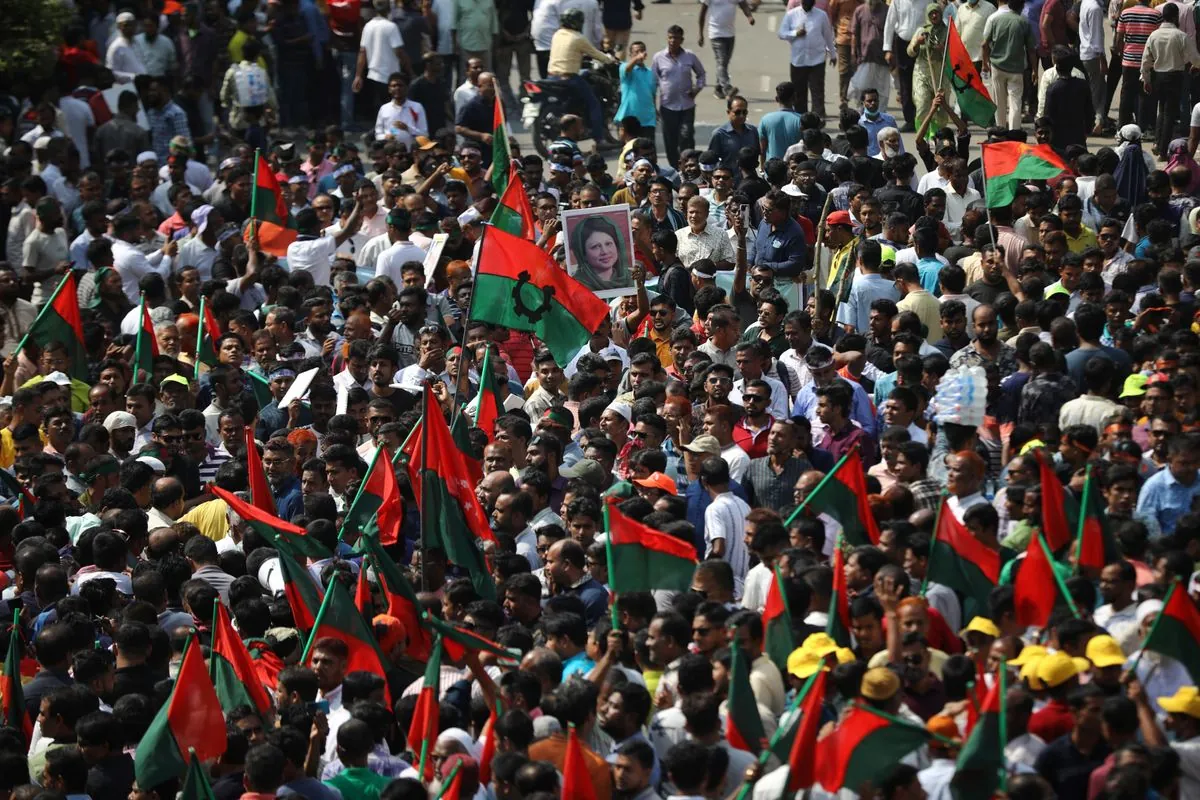Bangladesh's Political Upheaval: US-India Relations Tested
Bangladesh's recent political turmoil has exposed tensions in US-India relations. As Sheikh Hasina's government falls, both nations grapple with the consequences of their past diplomatic decisions in the region.

In August 2024, Sheikh Hasina, Bangladesh's long-serving prime minister, was deposed in a student-led uprising, marking a significant shift in the country's political landscape. This event has brought to light the complex interplay between the United States, India, and Bangladesh, revealing the challenges of balancing regional interests with democratic values.
A year prior to Hasina's ouster, Indian officials had begun lobbying their US counterparts to ease pressure on the Bangladeshi leader. The US had been critical of Hasina's government for its crackdown on opposition and threats to democracy. However, Indian officials argued that allowing the opposition to gain power could lead to security threats, particularly from Islamist groups.
"You approach it at the level of democracy, but for us, the issues are much, much more serious and existential."
This stance reflects India's long-standing concerns about regional stability. Bangladesh, the world's eighth most populous country with over 165 million people, has a history of political instability, including multiple military coups since gaining independence from Pakistan in 1971.
The US ultimately softened its criticism and shelved threats of further sanctions against Hasina's government. This decision has been attributed to various factors, including the need to maintain strategic partnerships in the region and concerns for the safety of US diplomats.
The situation highlights the US dilemma in balancing its relationship with India, seen as a crucial partner in countering China, while also promoting democratic values in the region. India's support for Hasina, who served as Prime Minister for over 19 years across four terms, has now come under scrutiny.

The Bangladesh Nationalist Party (BNP), founded in 1978 by Ziaur Rahman, could potentially win if elections are held soon. BNP leaders have been attempting to mend ties with India, assuring that India's interests and the Hindu minority in Bangladesh would be protected if they return to power.
Meanwhile, Muhammad Yunus, the Nobel Peace Prize winner known for his work on microcredit, has taken charge of Bangladesh's interim government. He has called for new, free, and fair elections once stability is restored in the country.
As Bangladesh navigates this political transition, it faces numerous challenges, including the impacts of climate change and the ongoing Rohingya refugee crisis. The country's economy, which has been one of the fastest-growing in Asia, may also be affected by these political developments.
The unfolding situation in Bangladesh serves as a reminder of the complex dynamics in South Asia and the delicate balance between regional stability, economic growth, and democratic aspirations. As both the US and India reassess their approaches, the coming months will be crucial in shaping the future of Bangladesh and its relationships with its neighbors and global powers.


































